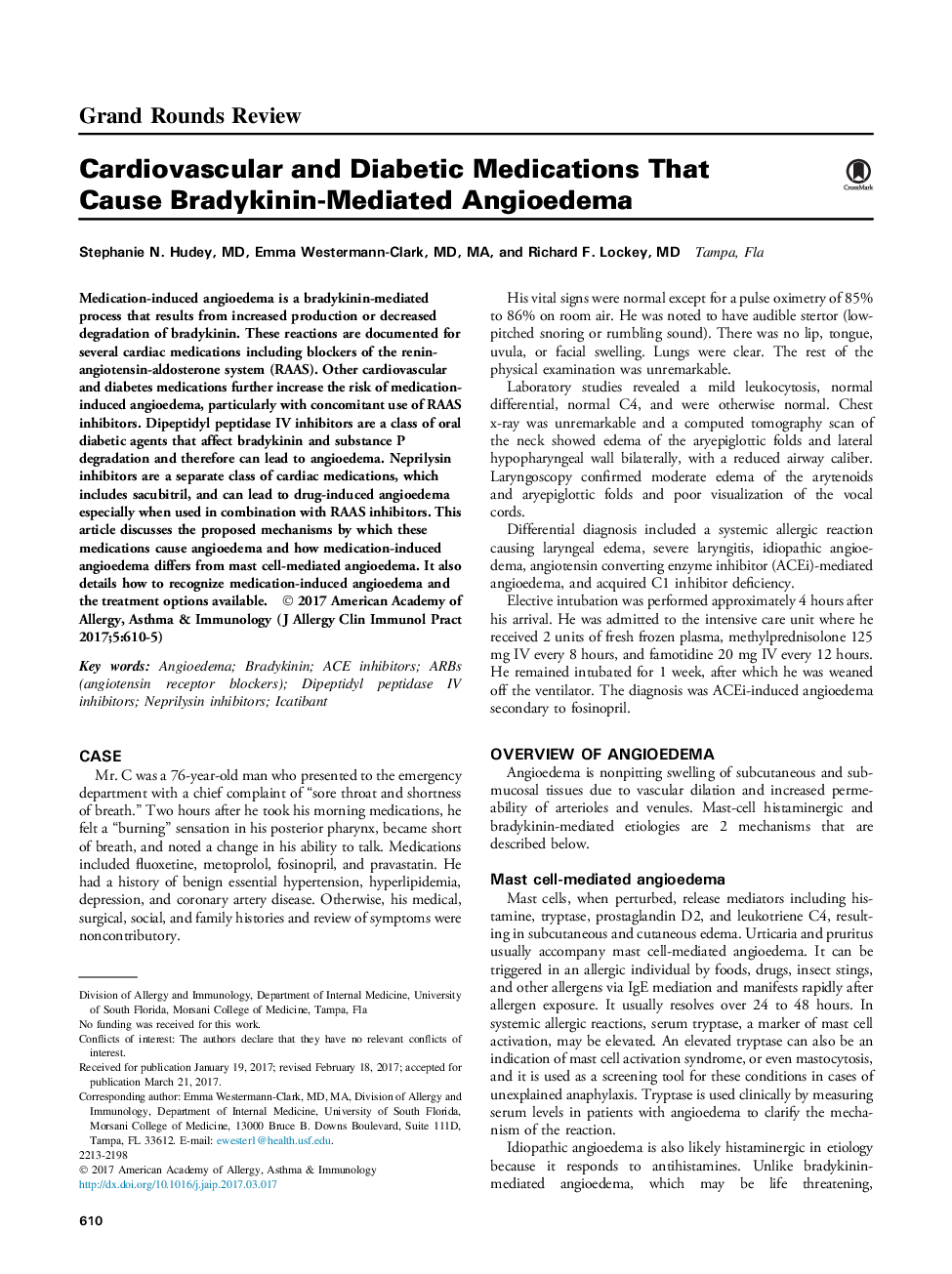| Article ID | Journal | Published Year | Pages | File Type |
|---|---|---|---|---|
| 5647229 | The Journal of Allergy and Clinical Immunology: In Practice | 2017 | 6 Pages |
Abstract
Medication-induced angioedema is a bradykinin-mediated process that results from increased production or decreased degradation of bradykinin. These reactions are documented for several cardiac medications including blockers of the renin-angiotensin-aldosterone system (RAAS). Other cardiovascular and diabetes medications further increase the risk of medication-induced angioedema, particularly with concomitant use of RAAS inhibitors. Dipeptidyl peptidase IV inhibitors are a class of oral diabetic agents that affect bradykinin and substance P degradation and therefore can lead to angioedema. Neprilysin inhibitors are a separate class of cardiac medications, which includes sacubitril, and can lead to drug-induced angioedema especially when used in combination with RAAS inhibitors. This article discusses the proposed mechanisms by which these medications cause angioedema and how medication-induced angioedema differs from mast cell-mediated angioedema. It also details how to recognize medication-induced angioedema and the treatment options available.
Keywords
ARNiDPP-IVAPPARBRAASA-type natriuretic peptideAT2FFPBradykinin type 2 receptorCPNANPAminopeptidase PAngioedemaHereditary angioedemaangiotensin-converting-enzyme inhibitorIcatibantbradykininHAEdipeptidyl peptidase IVRenin-angiotensin-aldosterone systemAngiotensin receptor blockerACE inhibitorsACEI یا angiotensin convert enzyme inhibitorDipeptidyl peptidase IV inhibitorsNEPfresh frozen plasmacarboxypeptidase Nangiotensin type 2 receptor
Related Topics
Life Sciences
Immunology and Microbiology
Immunology
Authors
Stephanie N. MD, Emma MD, MA, Richard F. MD,
